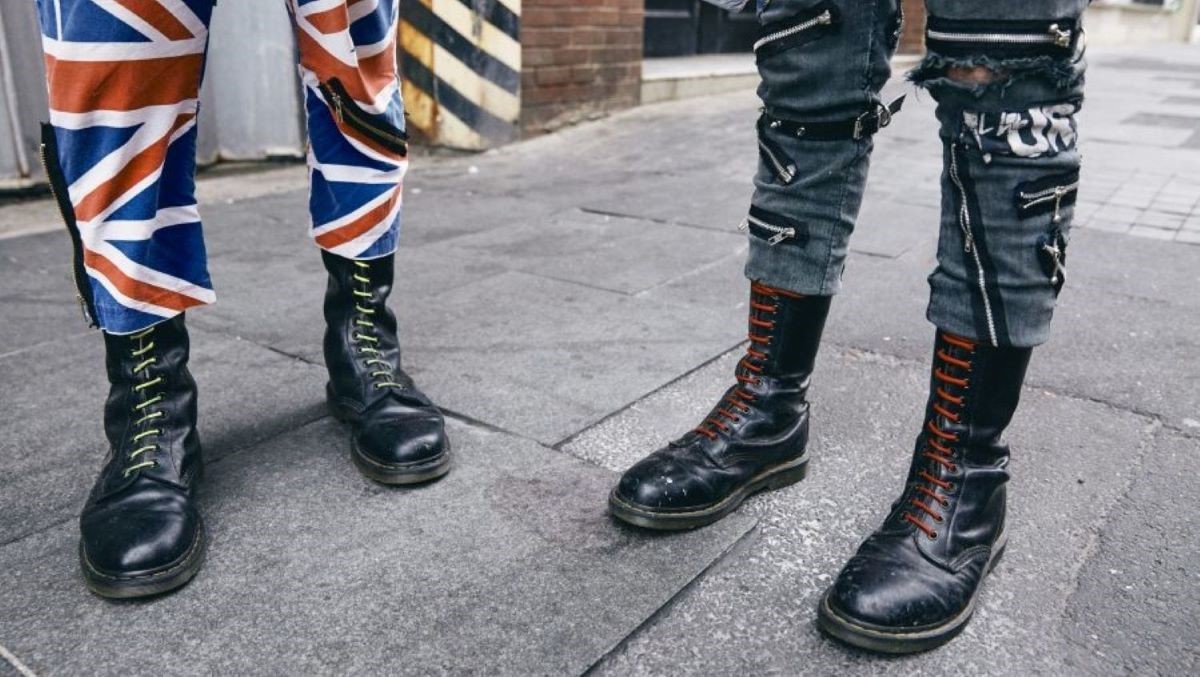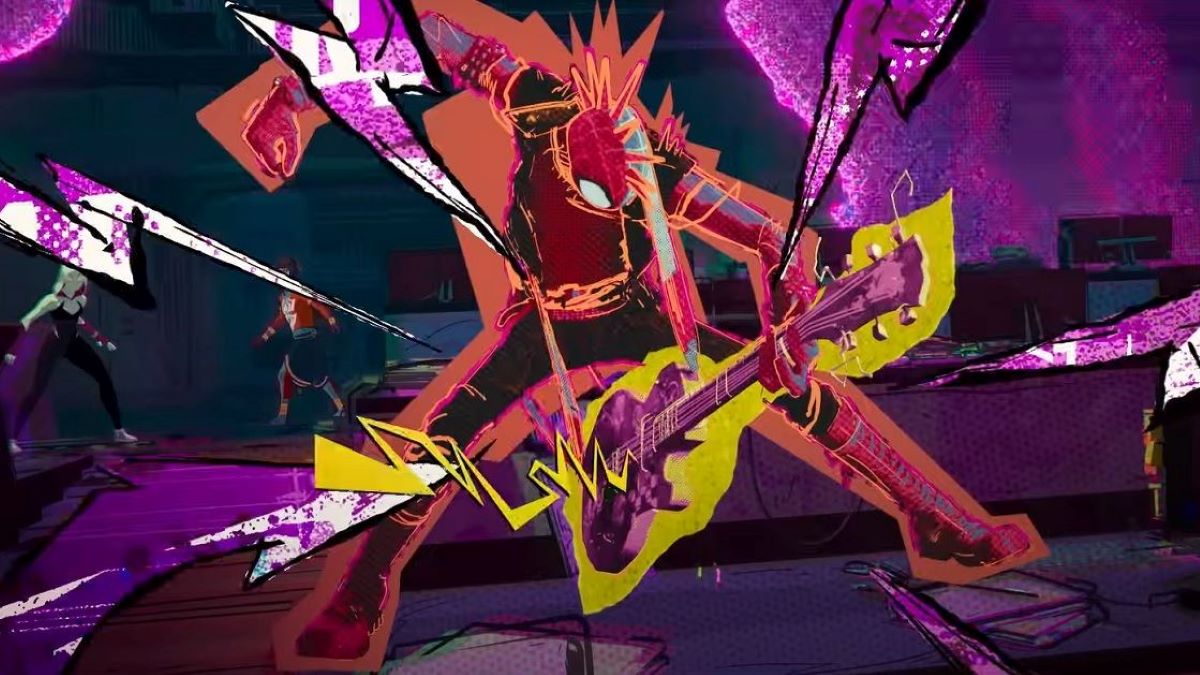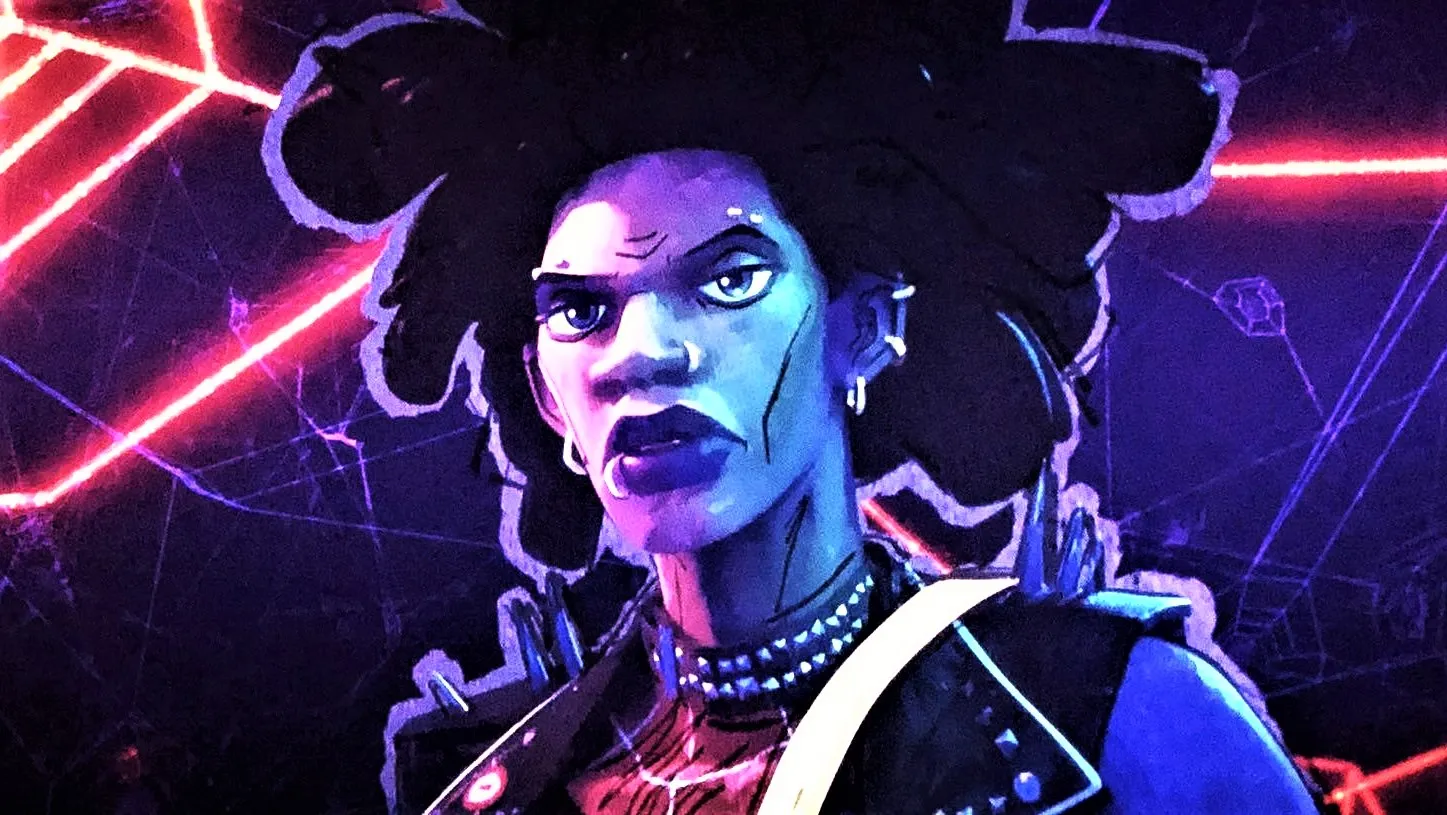Image via Sony Pictures
The box office sensation Spider-Man: Across the Spider-Verse has accomplished the significant milestone of crossing $400 million. The movie’s stunning visuals and breathtaking action sequences leave no doubt that it deserves every penny. The film also boasts an extensive cast of Spider-People, and of all its unique iterations and breakthrough stars, Hobie Brown, also known as Spider-Punk, stands out. Voiced by actor Daniel Kaluuya, Spider-Punk embodies the anti-establishment, memorably stating, “I hate the A.M.! I hate the P.M.!”
Throughout the film, Spider-Punk remains true to his anarchist beliefs, refusing to follow Miguel O’Hara’s plans, helping Miles Morales in secret, and supporting Gwen Stacy in difficult situations. However, some eagle-eyed fans have noticed a subtle detail that holds the key to Spider-Punk’s backstory: his blue shoelaces.
What do blue shoelaces mean?

Spider-Punk’s character concept stems from the punk ideology in the late ’70s and early ’80s counterculture movement driven by influential bands like The Clash, The Sex Pistols, and The Dead Kennedys. The punk look featured steel-toed Doc Martens work boots that not only looked good but served their purpose in a fight. As the punk subculture evolved, it fragmented into different factions, many of which despised each other. To identify their allegiances, the “shoelace code” was born, delineating friend or foe based on the color of one’s bootlaces. Yellow laces meant you were part of an anti-racist movement like Skinheads Against Racial Prejudice, purple laces indicated your support for LGTBQ+ causes, and red laces were worn by neo-Nazi group members, with blood-red symbolizing their role in violence.
So, what do Hobie’s blue shoelaces signify? Blue laces traditionally mean that you have killed a cop personally, indicating that you are a gang member wanting to flaunt your violent credentials. Blue laces are visible at anti-law enforcement protests, symbolizing solidarity with groups that police have traditionally persecuted.
Is Spider-Punk a cop-killer?

Although it’s never explicitly stated, Spider-Punk’s backstory as revealed in the movie hints that he may have killed a police captain in his universe. As most Spider-People have “canon events” tied to the death of a police captain, Spider-Punk’s backstory also features a similar incident. Fans of the movie are now speculating that Spider-Punk killed his own father in his universe, but the fact that he has incorporated this into his costume suggests that he sees it as tragic but necessary.
Spider-Punk will make his return in Spider-Man: Beyond the Spider-Verse next year, giving viewers an opportunity to delve into his backstory. However, Sony Pictures is unlikely to confirm an explicit connection between Spider-Punk and cop-killing, so it may remain in the realm of fan theory rather than being confirmed onscreen.


